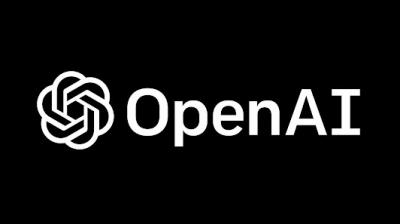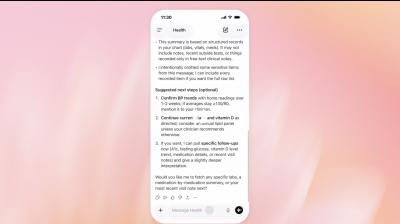The most polite thing I can say about the internet right now is that it’s becoming suspiciously well-behaved. Sometime in the last 18 months, search stopped feeling like a conversation and started feeling like a customer service form. Ask a question, receive a cheerful, contextually relevant summary. No click required. No thinking, if you’re in a rush.
The tools are impressive. Perplexity gives you footnotes. Claude gives you tone options. ChatGPT offers explanations in the style of David Foster Wallace if you really want to punish yourself. But across platforms, the experience is the same: polished, frictionless, and mildly uncanny.
You get the answer. But something else goes missing.
The web without the wander
Before search became an answer box, it was a terrain. You clicked through a mix of speculation, oversharing, and surprising insight. A question led to a journey.
You might start by reading a review of a budget washing machine and end up in a 2014 forum thread debating the morality of planned obsolescence in Indian manufacturing. The point was never the machine. It was always the meandering.
That path, 'the unreliable, joyful, often frustrating arc of discovery' is increasingly being smoothed over by systems designed to predict what you want and deliver it before your curiosity has fully stretched its legs.
Zero clicks, zero friction
In 2025, the numbers began to solidify. According to Pew Research, when Google’s new AI overviews appear at the top of a results page, user click-through drops by more than 50%. When the AI box isn’t there, people are twice as likely to explore sources.
Mobile users are now exiting nearly 70% of their searches without clicking through to a single site. These are called 'zero-click' searches and they’ve become the norm.
It’s not just a Google story either. Reddit, sensing the trend, signed a USD 60 million deal to license its content to OpenAI. Stack Overflow followed. Publishers, meanwhile, have been left to watch their traffic collapse while their content continues to train the very systems that replace them.
Platforms are becoming front-ends for information that no longer needs to be visited. The internet is still there, somewhere behind the answers but fewer people are knocking on its doors.
The platform makes its move
Then came the bid; part science fiction, part corporate theatre.
Perplexity offered $34.5 billion in cash to acquire Google Chrome, the world’s most-used browser. On the surface, it looked absurd: a startup attempting to buy the very window through which most of the internet is viewed. But it wasn’t a joke. The proposal included keeping Chrome open-source, investing USD 3 billion into the browser, and in a delicious twist letting Google remain the default search engine. Whether it succeeds or not is beside the point. The mere fact that a generative AI company now feels entitled to own the interface says everything about where power is shifting. The tools are tired of being tools.
When the interface becomes the idea
This shift isn’t only about search engines or SEO strategy. It’s about cognition.
Language models are designed to give us the statistically most probable answer, drawn from everything they’ve absorbed. But what’s probable is not always what’s useful. And what’s useful often depends on why we’re asking the question in the first place; a nuance that no algorithm can reliably infer.
The more streamlined the answer, the less room there is for doubt, tension, or contradiction. The discomfort of thinking through a problem is replaced by a version of closure that arrives too early.
Cognitive psychology tells us that struggling with a question before receiving the answer leads to better memory retention and deeper understanding. But AI summaries encourage the opposite pattern. We prompt, we skim, we move on.
Knowledge without texture
There is a loss of texture in the way these systems deliver knowledge. Not just aesthetic texture, but the kind that comes from encountering different registers of voice, tone, credibility, and intent.
Before these tools, reading a political analysis meant discerning the writer’s background, detecting bias, comparing across sources. Now, the voice has been homogenized, stripped of particularity, arranged for readability.
That smoothness, while comforting, removes the edges that help us develop judgment. The kind of judgment that allows us to say: this argument is clever but incomplete, or this person is writing in bad faith.
When everything is styled like a Wikipedia entry, we become less sensitive to the difference between being informed and being merely fed information.
The shallowing of digital culture
Online culture has always rewarded speed, but AI adds a new layer of automation to that economy. Students now use generative tools to write entire assignments. Brands use them to create content pipelines with no real voice. Newsrooms produce summaries of summaries, optimised for engagement but not necessarily insight.
This is how intellectual life becomes procedural. Not incorrect. Just dull.
When AI becomes the default interface for knowledge, it doesn’t just shape what we find. It shapes how we think about what’s worth finding. What we ask, how long we stay with a question, whether we feel the itch to ask another.
If everything is answerable, then fewer things feel worth investigating.
The return of the specific
Still, something curious is happening in response. As AI-generated content floods the surface of the web, there's a renewed appetite for what feels un-generated.
Newsletters are growing. Substacks with strong editorial voices are gaining traction. Writers with point-of-view — even if flawed — are being sought out, not for perfect information but for presence. Not automation, but attention.
Even among Gen Z users, search behaviour is changing. More users are starting with Reddit or TikTok, not because they’re more accurate, but because they feel more human. Platforms like Reddit are becoming search destinations, not just for threads, but search itself. Reddit now handles 70 million search queries weekly, with AI-powered results baked in.
Messier, yes. But also, specific. Alive.
In this, there’s a signal: when everything starts to sound the same, difference becomes a form of credibility.
Keeping the question alive
This moment isn’t about rejecting the tools. It’s about refusing to let them narrow our mental habits. Read beyond the AI snippet. Click links, follow threads and build a mental map. Encourage ambiguity. Ask questions AI can’t resolve. Stay unsettled. Support content that resists summary. Subscribe, share, attend events. Invite economy beyond answers.
There is still room to pause before clicking. To sit with a question without needing an instant resolution. To read things that don’t immediately serve a purpose. To follow links that take you off-track. To resist the urge for answers that always arrive on time.
The future may well belong to the prompters. But the ability to dwell; to inquire without conclusion might be the more radical skill.
And some of us are still interested in the places where the path hasn’t already been optimised.
The author is head - communication branding and strategic content, Moe's Art.

.jpg)











